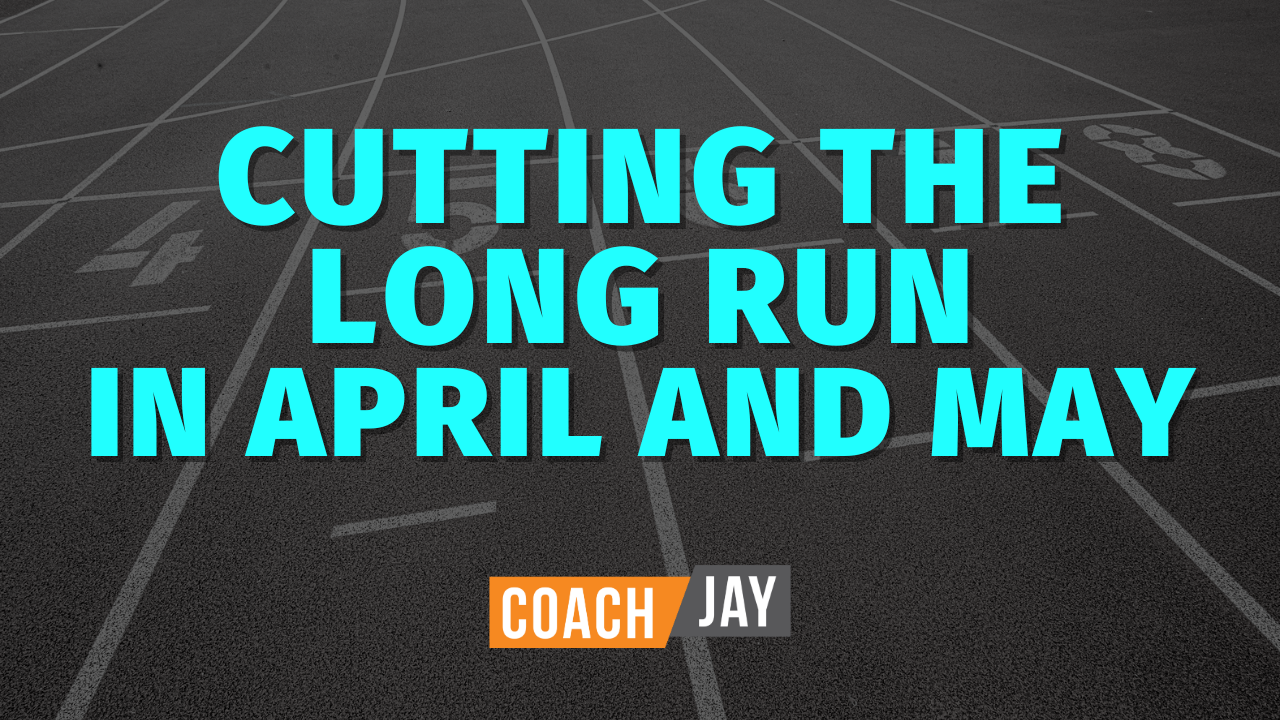
Track Training Tips: Cutting the Long Run in April and May
This is an article for high school track coaches, but athletes and parents may enjoy it as well.
The long run is a key workout in my training most months of the year. Both cross country runners and 1600m/3200m runners gain significant fitness from weekly long runs (or a long run every 10 days).
And...
When an athlete only has three or four weeks left in their track season, however, the long run should not be a key workout.
“But don’t we need to stimulate the aerobic metabolism in these last few weeks?”
Absolutely!
But a long run isn’t the most effective way to do this when you consider the stresses from races and race pace workouts. Your kids have a limited number of hard days they can complete in a week.
What could you do in place of a long run to get an aerobic stimulus?
Progression Runs
I love progression runs for three reasons.
First, athletes have fun with them.
Second, athletes gain confidence when they run 20-30 minutes and feel fast at the end of the run.
Third, a controlled progression run advances the athlete’s fitness.
While I think older kids can handle 30-minute progression runs most months of the year, I’d consider just 20 or 25 minutes as the appropriate assignment this time of year.
The workouts both start with 10 minutes steady, then 5 minutes a bit faster, then 5 minutes fast but controlled for the 20-minute version.
For 25 minutes simply tack on one more 5-minute segment in the middle, but again, that last segment must be controlled. The workout is 10-5-5-5 for 25 total minutes.
For both assignments, the athlete needs to be able to say: “I could have run 5 more minutes at that pace without any problem. And, if you told me I had to do 10 more minutes, I had that in me, but it would have been a race effort.”
Then you have them run easy for 3-5 minutes, before immediately going nto the post-run work, to extend the aerobic stimulus. If the concept is new to you, read about it in A Comprehensive Cross Country Training Plan.
“What about strides?”
Great question.
When I assign this workout, the athlete would have done 3 x 20 second strides at 5k pace in the first 15 minutes of the run for a bit of “engine revving.” (see full workout below)
Yet, if athletes are doing strides every other day that they run, then this is a day where they can go right into the challenging post-run work and get a longer aerobic stimulus, rather than changing into spikes and having their heart rate dip.
The Bottom Line
The long run is the cornerstone of my coaching for the first few months of summer training and winter training.
In April our focus is on racing and race pace workouts, with easy days that include strides and strength and mobility to maintain aerobic fitness and musculoskeletal strength.
When kids have just a handful of weeks left, keep the easy days easy, so they recover from races and hard workouts.
...and if kids love long runs, remind them that June will be here before they know it...
Progression Run - Workout Assignment
Here’s how I assign this workout.
- Dynamic Warm-up (get the one I currently use here)
- 7 minutes of easy running, followed by 8 minutes with 3 x 20 seconds at 5k pace.
- 20-minute progression run: 10 minutes steady, 5 minutes a bit faster, then 5 minutes faster but controlled.
- Run easy for 5 minutes, then go directly into post-run work. Total run time is 40 minutes. (If doing a 25-minute progression run, then the total run time is 45 minutes).
- Post-run work is a “Hard” day. Use color progression or do the SAM phase you're on.
One thing to remember with this is that if there is no break between the dynamic warm-up and the running, and no break between the running portion and the post-run work, the total time moving is:
13 minutes – Dynamic warm-up
40 minutes – Running portion
20 minutes – Post-run work
Thus, with just a 20-minute progression run the total time moving is 73 minutes. If an athlete can handle a 25-minute progression run, then they are likely doing 25 minutes of post-run work on their Hard post-run day. Thus, they get in 83 minutes.
“We measure stress, not mileage.” - John O’Malley at the 2018 Boulder Running Clinics.













